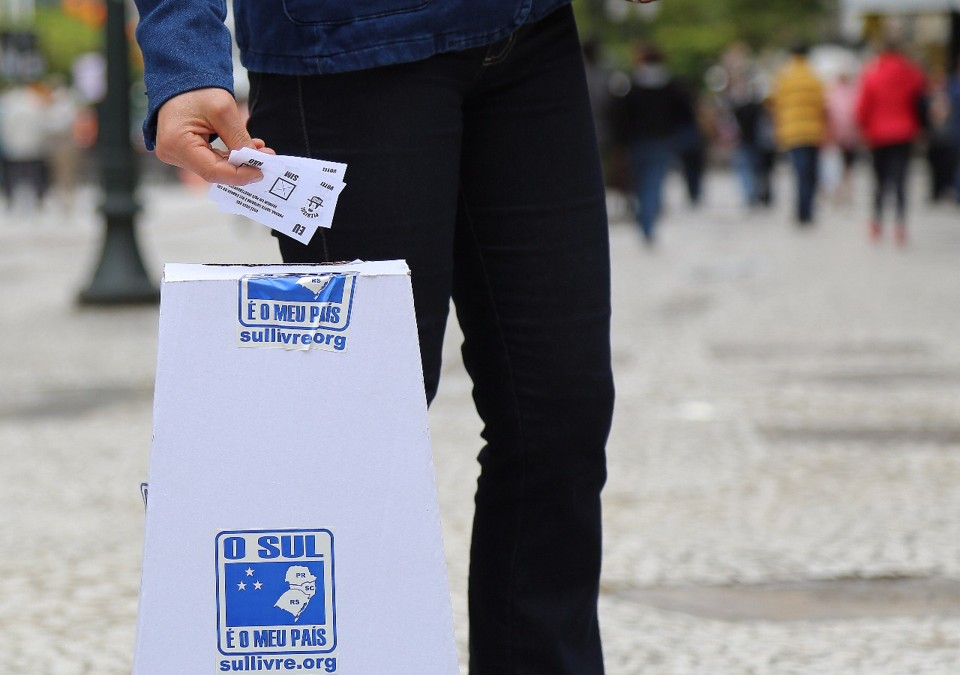
Founded in 1992, the movement “O Sul é Meu País” (“The South is My Country”) brings together individuals from three states in southern Brazil (Rio Grande do Sul, Santa Catarina and Paraná) with the objective of separation. These states believe that there are significant cultural and historical differences between inhabitants of this region and the rest of the country. They also dispute more practical issues, such as the transfer of taxes to the Union, a recurring theme among other Brazilian separatist movements (such as in the case of movements calling for the separation of the state of São Paulo).
The movement has always been treated as a joke. Its goals are forbidden by the Brazilian constitution, which preaches the indivisibility of the country. Yet the contempt for the sentiment it engenders may not be the best way to deal with the situation – especially considering that, apart from separatism, the movement preaches economic liberalism and minimal state intervention. These economic positions are gaining more and more traction in Brazil, and can be therefore used to cultivate broader support for the separatist cause.
In 2016 and 2017, the group organized two informal plebiscites in the three states, called Plebisul. Voter turnout wasn’t spectacular: roughly 600,000 in the first, 350,000 in the second. But in both cases, over 95 percent who actually voted wanted the independence of the region. Undoubtedly this would seem like limited support, one more reason for the group to be treated as a joke, but in analyzing the question objectively one could conclude: a group capable of galvanizing between 300,000 and 600,000 people cannot be treated as a mere joke.
Still, in the midst of...

 Search
Search






































